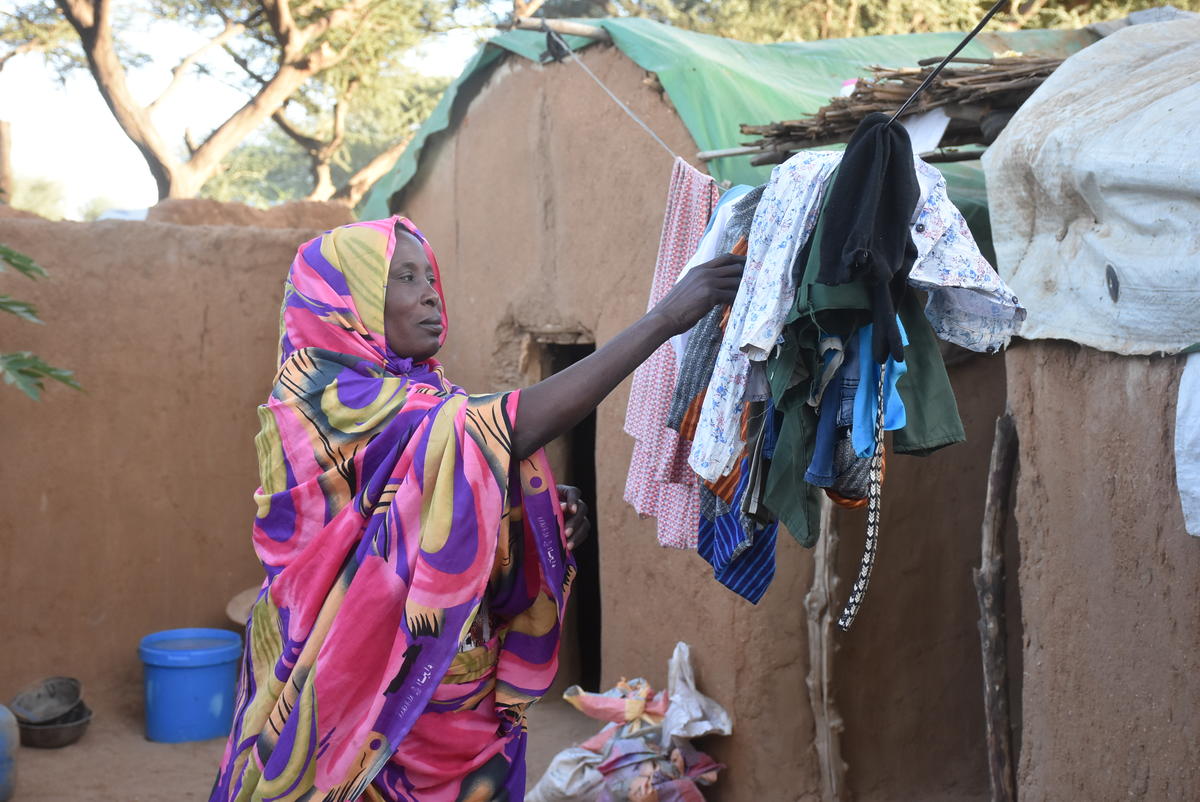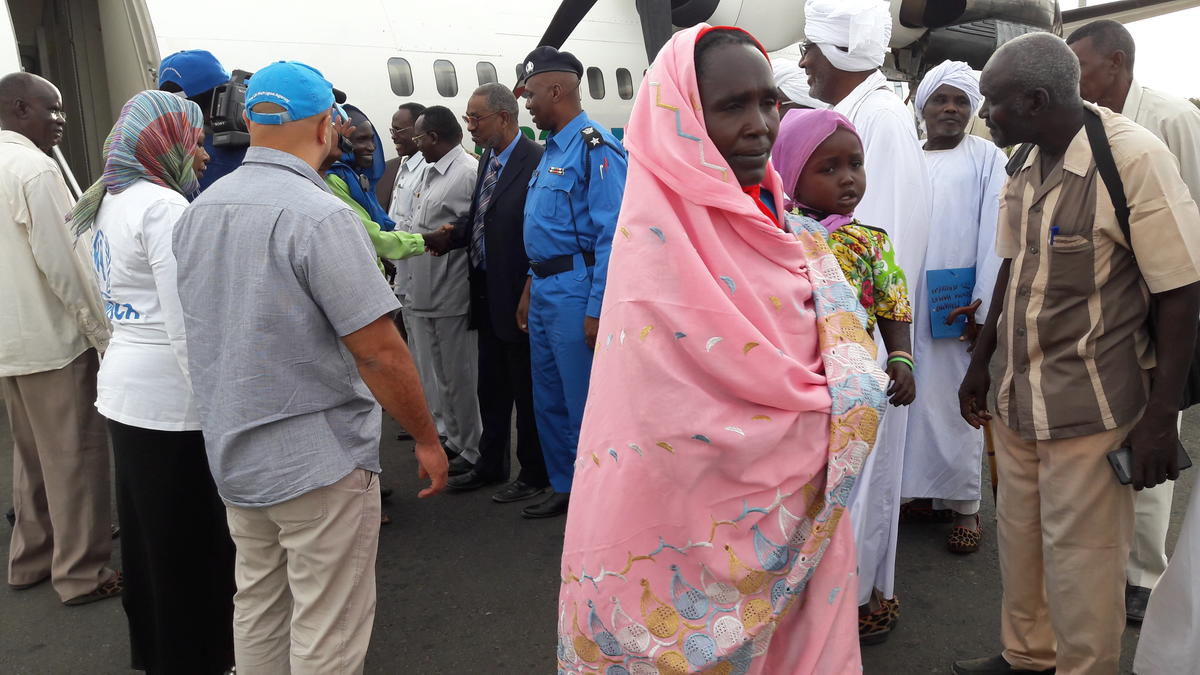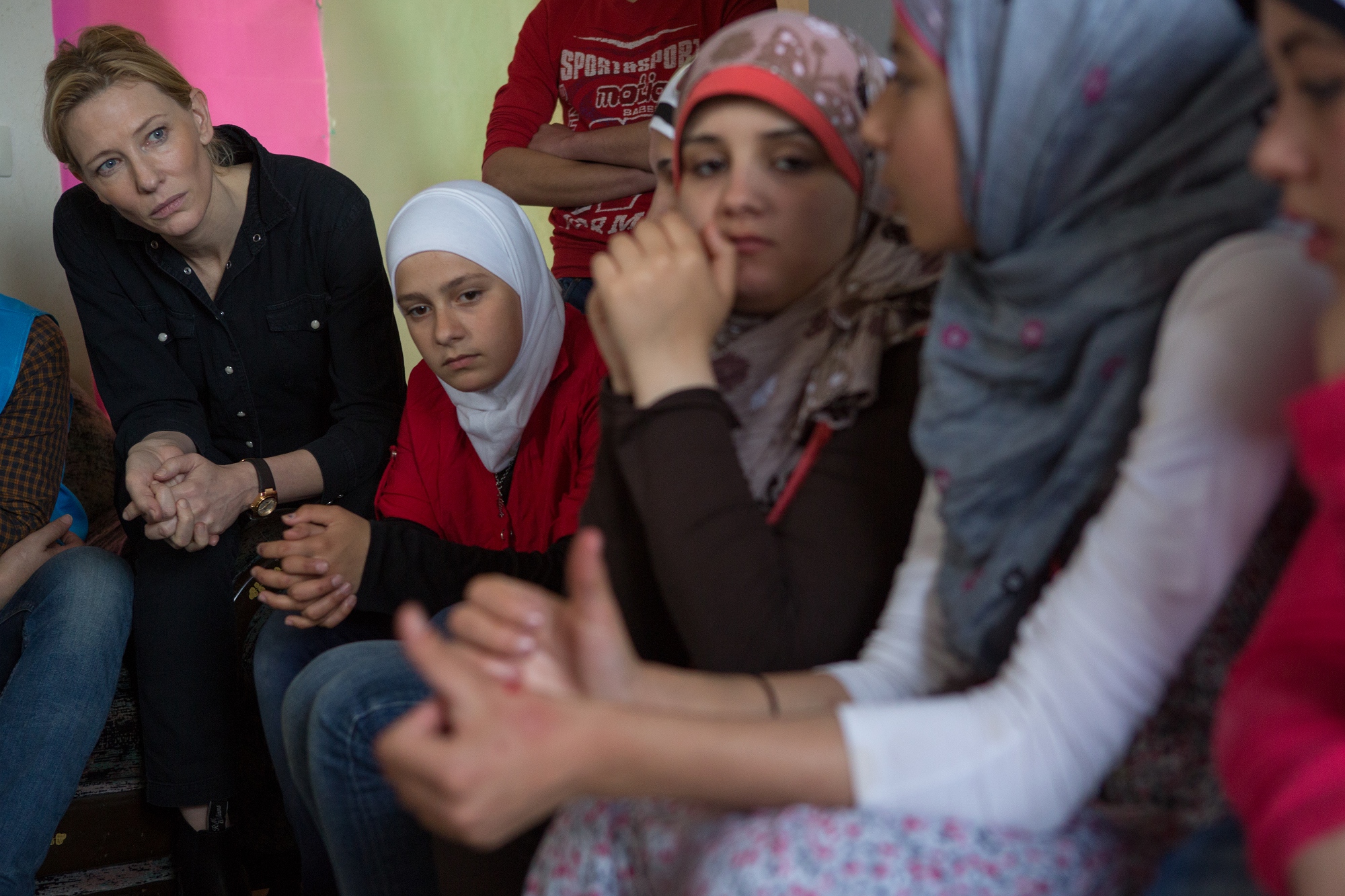'The Kite Runner' author, Khaled Hosseini, experiences Chad's insecurity
'The Kite Runner' author, Khaled Hosseini, experiences Chad's insecurity

GUEREDA, Chad, February 13 (UNHCR) - Khaled Hosseini, author of the best-selling novel The Kite Runner, got a first-hand glimpse of the insecurity plaguing eastern Chad during a recent tour of UNHCR operations in the region.
His visit to the Kounoungou camp, home to 13,000 Sudanese refugees who fled violence in neighbouring Darfur, had to be cut short after an exchange of fire between a Chadian soldier and a former rebel left two people dead.
The violence is severely hampering humanitarian activities in eastern Chad by disrupting access to refugee and internally displaced populations and putting additional strains on field teams which have already been reduced in numbers due the security situation.
Hosseini was able to continue his fact-finding mission with a visit to the nearby Mile camp, which hosts more than 15,000 Sudanese refugees.
For the author, the trip was the result of his desire to see first-hand one of UNHCR's largest and most complex operations. He also wanted to use his experiences to bring wider attention to the Darfur crisis in the United States, where the non-profit organisation, USA for UNHCR, is running a fund-raising campaign entitled: Aid Darfur.
Before travelling to the camps, Hosseini - who was last year named a Goodwill Envoy for the UN refugee agency in the United States - received an exuberant welcome from a group of dancers and musicians in the village of Senere, site of a school constructed by UNHCR for the local community. The project, and others like it, benefit host populations and are designed to lessen the impact of large refugee numbers in areas where resources are in short supply.
Yacoub Abdullah has lived in Kounoungou for two years, but he remembers the events of the day that drove him to the camp as though they were a nightmare he had just awoken from. "In the morning we saw men on horses with guns," he told Hosseini inside his small mud house. "They first set fire to our houses and then they began shooting. Girls, boys, old men, the guns did not know the difference."
For seven months Abdullah lived in a grove of trees on the Chad-Sudan border with his wife and their 10 children. His livestock died, leaving the family with no possessions. In early 2004, a team from UNHCR found the family and brought them to the Kounoungou camp where Yacoub is now a school administrator.
As well as visiting classrooms in both camps, Hosseini met with community elders and members of a women's support group for victims of sexual violence. Many of the refugee women report that they were sexually assaulted during the attacks on their villages.
Others have been abused as they gather firewood beyond the security of the camps. In order to lessen the need for firewood, an organisation working with UNHCR has developed a fuel efficient stove which uses 80 percent less wood.
"Coming here and talking to people living in these camps has brought home for me the enormity of the tragedy that has driven these people from Darfur across the border into eastern Chad," said Hosseni. "People's villages are burnt, their friends and family and relatives are butchered, their homes and property are lost and they have to walk for days to get to the Chadian border, where they try to survive with very limited resources until they are brought over to the camps."
The insecurity in eastern Chad is being felt both inside and outside the camps. Humanitarian workers must now travel in a convoy and use a police escort to visit both Kounoungou and Mile.
"We have also seen an increase in violence inside the camps," said Jorge Holly Prantl, head of UNHCR's office in Guéréda. "We have had reports of forced recruitment of young men from the camp as well as some armed elements inside the camp. For the first time since it opened two years ago, two refugees were killed recently in Kounoungou."
Hosseini heard several first-hand accounts of the dangers faced by aid workers in the region as he met staff from UNHCR and its partner organisations, such as the International Medical Corps. "One of the things that struck me is that they render these services at great risk to their own well-being. They're being victimised by banditry. They've been carjacked. And some of them have had guns and knives pointed at their heads. Nevertheless, they continue working tirelessly to meet the needs of the refugees in Darfur."
UNHCR runs 12 refugee camps in eastern Chad, hosting more than 200,000 people. A further 2 million people are internally displaced within Darfur.
By Tim Irwin in Guéréda, Chad








